Volunteer network supports migrant women affected by violence
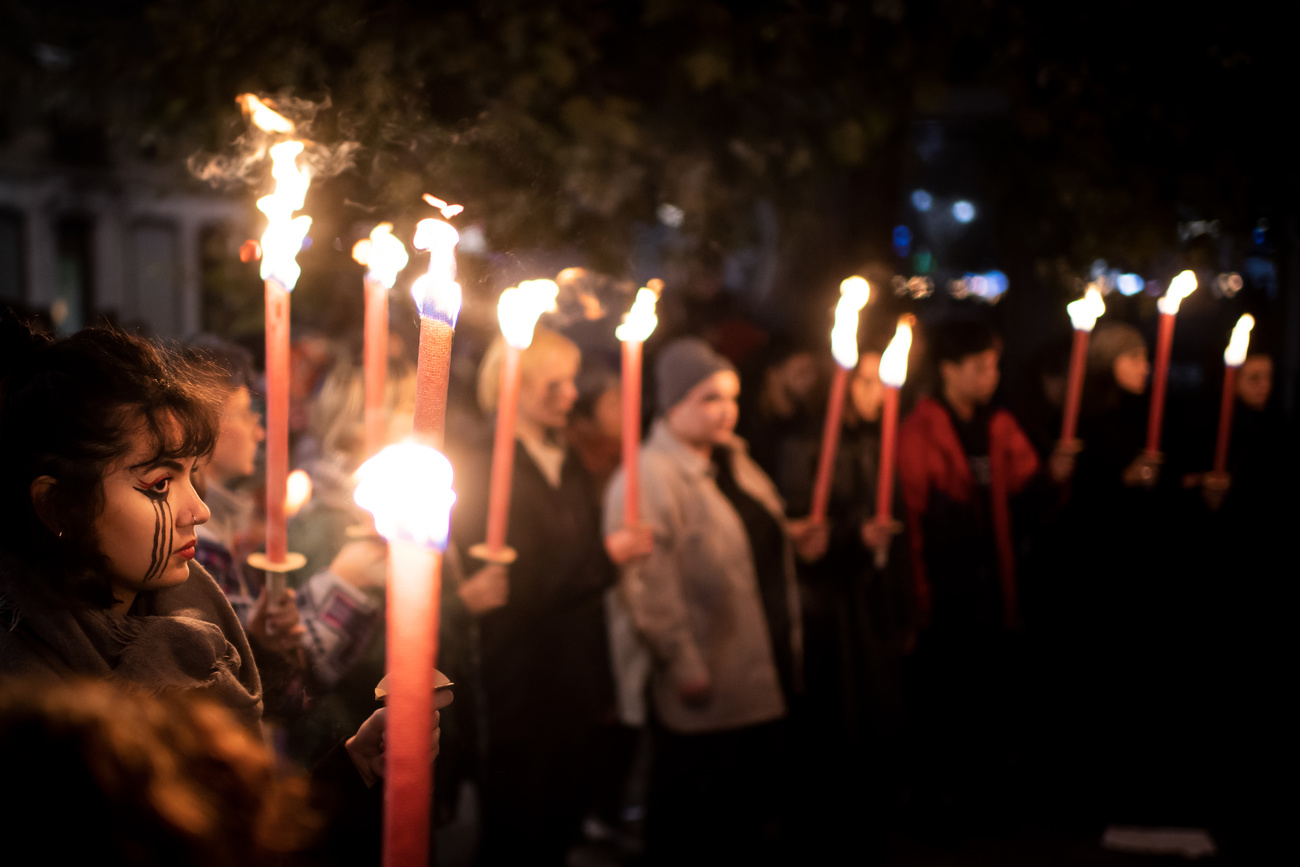
Despite a recent legislative change in Switzerland aimed at protecting migrant women from domestic violence, many still encounter significant barriers when seeking justice. A foundation in western Switzerland has created a network of trained volunteers to offer support to these women.
The fear of losing their residence permit is a significant concern among migrant women who are victims of domestic violence, according to Marisa Dinis, a Neuchâtel resident of Angolan origin.
Under current regulations, if a residence permit was issued as part of family reunification, it becomes invalid if the wife leaves the shared home. Exceptions have only been granted if the victim could prove the intensity and recurrence of violent acts against them.
In June, the Swiss parliament passed an amendment to the law on foreign nationals. This allows migrant women who have become victims of domestic violence to apply for an extension of their residence permit originally granted under family reunification.
Despite this legislative change, many affected women still find it difficult to speak out. The Surgir Foundation, an organisation based in Lausanne that advocates for women’s rights, has established a network of volunteers to support these women.
The volunteers, known as ‘multipliers’, speak the same language as the victims or have access to their communities.
“They are trained to listen to the victims and refer them to support structures if desired,” explains project manager Victoria Molina.
Currently, the programme is focused on cantons Vaud and Geneva, but there are plans to extend it to all of western Switzerland and eventually to the entire country.
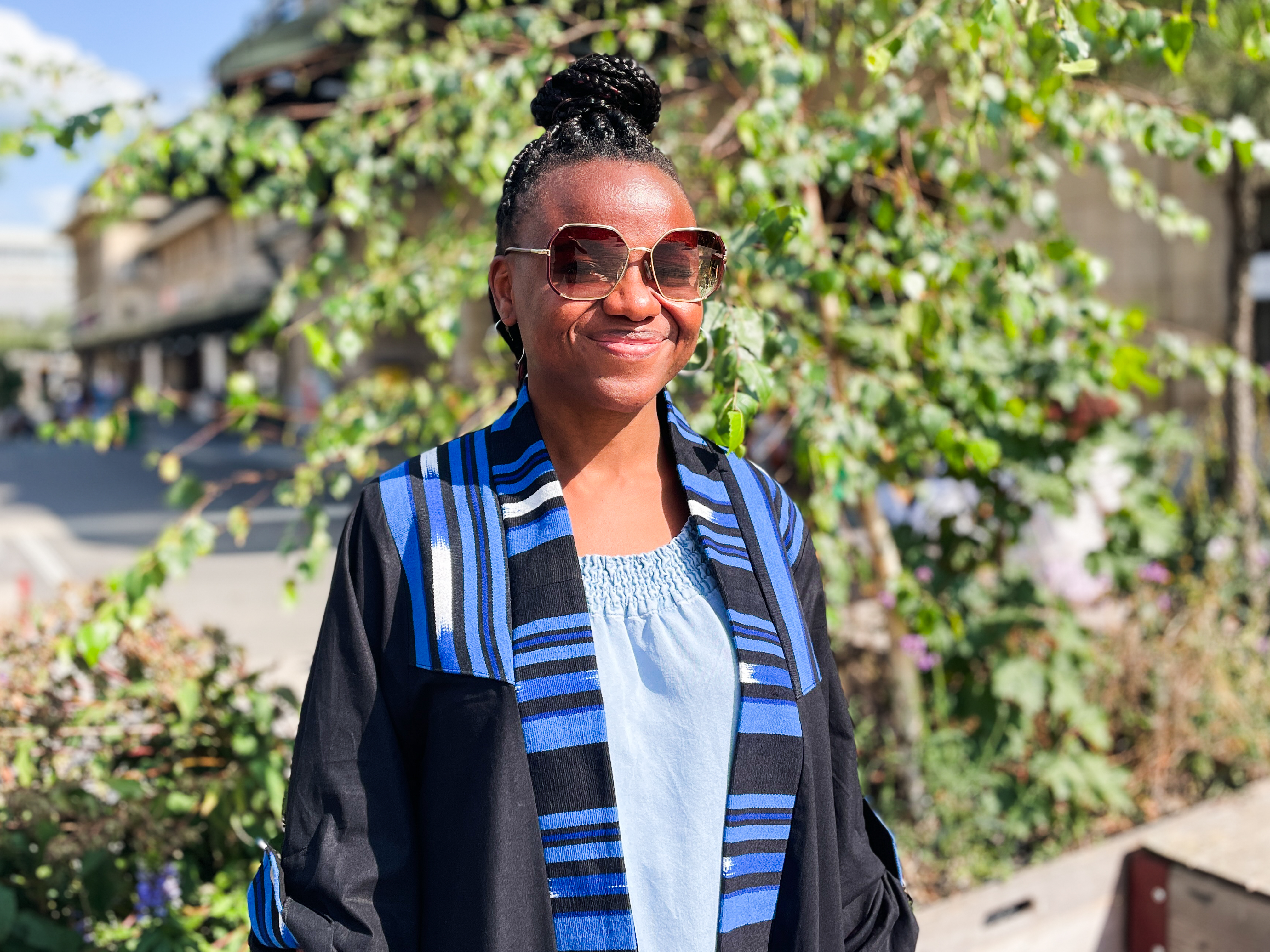
Dinis is part of the network of volunteers. The 33-year-old nursing student has personally experienced psychological and physical abuse from her father, who suffers from bipolar disorder. Her own story has driven her to help other victims.
Her background gives her a unique understanding of the challenges in seeking help. “You always have to explain and tell your story. Sometimes you feel like you can’t stay silent,” she says.
Migrant women are particularly vulnerable
In Switzerland, around 25 people die each year as a result of domestic violence, with 75% of these victims being women, according to the Federal Office for Gender Equality. Police statistics from 2023 reveal that 11,479 people were victims of domestic violence, 70% of whom were women.
While domestic violence affects everyone, migrant women are especially at risk and are less likely to use available support services, according to the Surgir Foundation.
“This is due to various factors: language barriers, lack of social connections, lack of knowledge about the laws and structures in Switzerland, and the fear of losing their residence permit,” explains Molina.
Andrea Velandia, a Venezuelan living in Geneva, has experienced this firsthand. “I am a survivor,” she says, recalling her escape from a violent husband a few years ago.
The house where she lived no longer exists, replaced by a modern train station. However, the memories of the violence remain vivid.
An economist by training, Velandia married a Swiss man she met in her home country and moved with him to Geneva. “It was a perfect love story,” she remembers.
But over time, the fairytale turned into a nightmare. “The violence crept in little by little, first psychological, then physical,” she recounts.

Velandia found herself trapped in an impossible situation. “It is impossible to return to my country,” she says, explaining that shortly after leaving Switzerland, the Venezuelan government placed her on a wanted list due to her human rights activism.
Her isolation made seeking help difficult. Her husband prevented her from working, making her financially dependent on him and limiting her contact with others. “At that time, I didn’t speak French well, which made communication difficult,” she recalls.
Eventually, the insults, beatings and death threats became unbearable. Velandia gathered her savings and fled to a women’s shelter.
After years of struggling with insecurity and the aftermath of violence, Velandia managed to rebuild her life and joined the Surgir Foundation’s network to help other women.
Isolation and language barriers
Ruken Azik and Sultan, two women living in Lausanne, have also undergone training to become ‘multipliers’.
They are members of lajîn, a Kurdish women’s organisation that advocates for women’s rights in canton Vaud. Both have encountered several cases of domestic violence within their community.
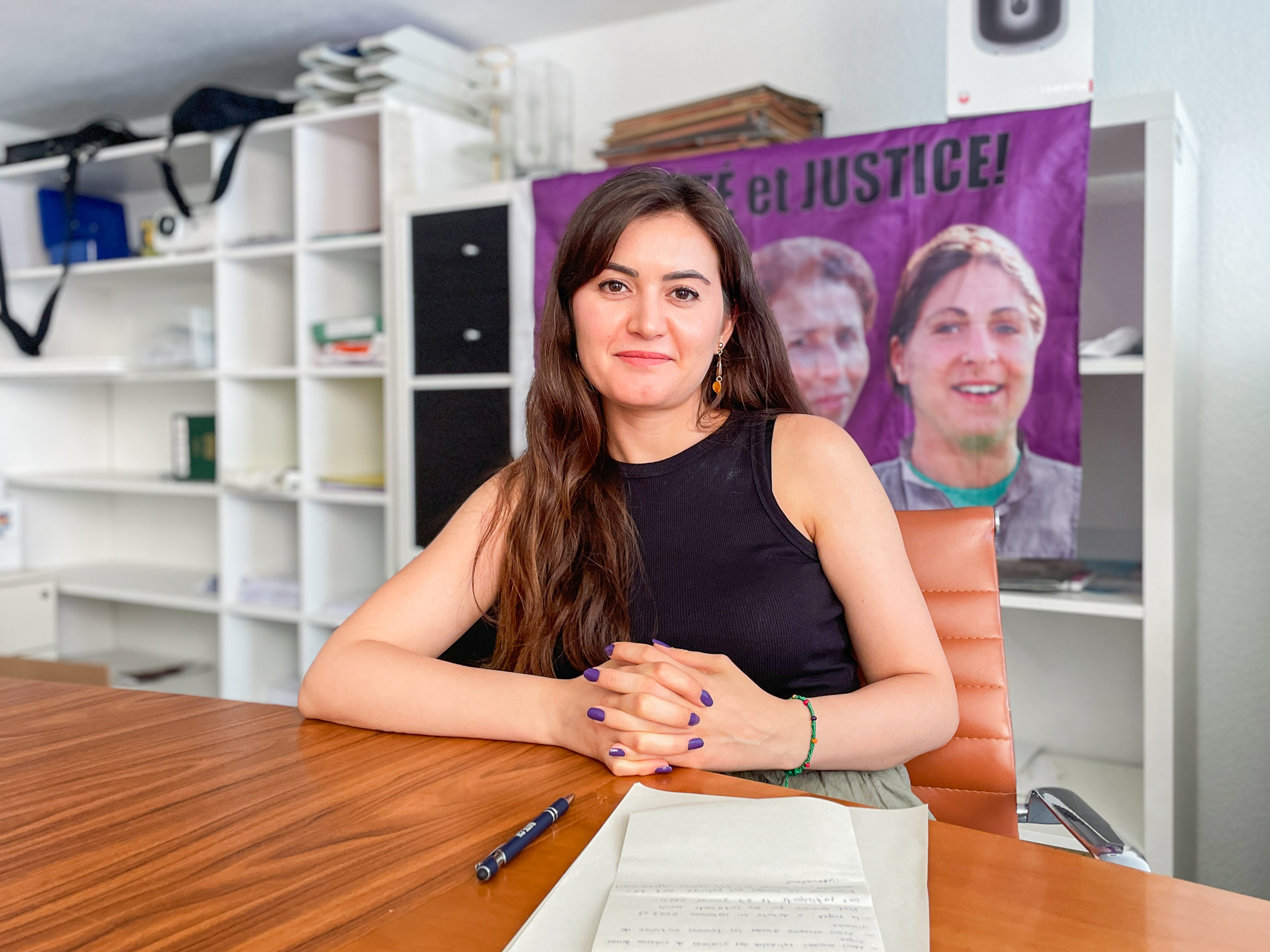
Azik, who has lived in Switzerland for two years, recalls a day when she was contacted to help a Kurdish woman in distress. “She didn’t speak French. She was a victim of domestic violence and had been thrown out of the house by her husband.”
Feeling helpless but determined, Azik accompanied the woman to various support organisations, providing translation and other assistance.
“These women confide in us because they can’t talk to anyone else about their experiences. In Switzerland, they are often isolated. They can’t turn to their families because divorce is frowned upon in our culture. They also can’t return to Turkey and have no trust in the police,” she explains.
Thanks to their training, Azik and Sultan now know how to support these victims effectively. They also work to raise awareness among the men of the Kurdish association who meet nearby.
By engaging in conversations and organising workshops about rights in Switzerland, they aim to foster understanding and change. “Sometimes the men are a bit afraid of us,” Azik jokes.
Violence is also a matter of money
Violence is not only psychological and physical but often also financial, says Valérie Koudoglo, a volunteer from Togo who lives in Bex, in canton Vaud.
She works with Ébène Suisse, an organisation dedicated to integration, and encounters many problematic situations, particularly within the African community, which is strongly represented in her region.
“Many women of African origin come to Switzerland through family reunification with their husbands. It is not uncommon for these men to forbid them from working and to control all the finances. As a result, the women live in isolation, have little contact with the outside world, and are completely dependent on their husbands,” she explains.
Koudoglo has experienced economic violence herself. She came to Switzerland at the age of nine and later married a man of African origin who had grown up in Switzerland.
“He didn’t want me to work so that I could take care of the children. He wanted to control everything but was unable to manage our finances. It got to the point where one day the bailiff came to evict us from our home,” she recounts.

The experience was a shock for Koudoglo, and she decided to get a divorce. “It was difficult because divorce is a stigma in Africa. The family pressures the woman not to leave,” she says.
It took a lot of courage for her to find a job and a place to live while caring for her two young sons. “I found my peace of mind, but I had to fight for it,” she says.
Today, Koudoglo has learned to identify women who live under their husband’s control. “They are more likely to confide in someone from their community. I try to refer them to support services. But often, they just want to talk.”
This is a decision she must respect, even though it is not easy for her. “Sometimes it gets to the point where the woman can’t take it anymore,” she says.
So far, the multipliers trained by the Surgir Foundation have supported twelve victims of violence over two years. Twenty-two volunteers participated in the foundation’s first training cycle, and around thirty have already signed up for the second cycle.
“The programme is a success. It shows that it meets a real need,” says project manager Molina.
>> Read our article on counting femicides:
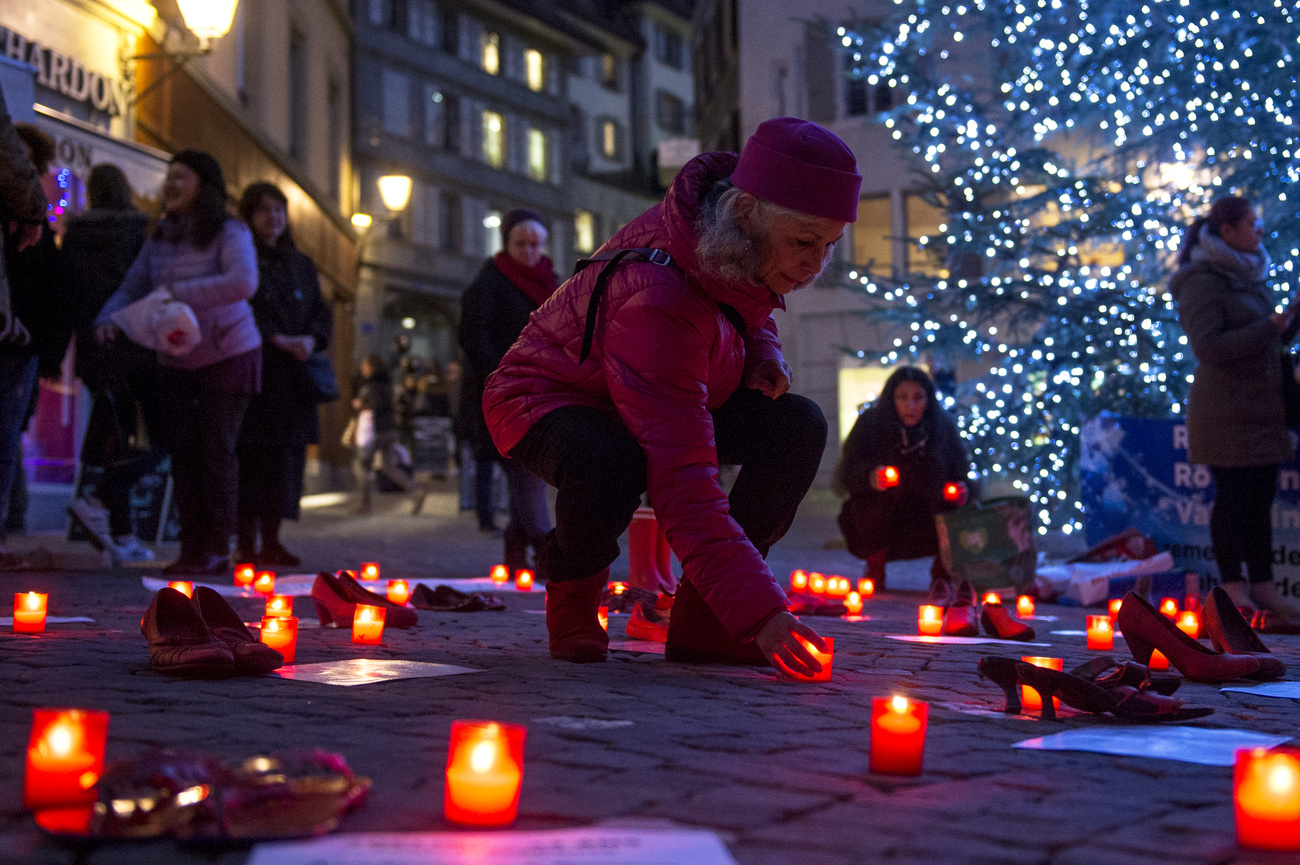
More
Why counting femicides is a global issue
Edited by Samuel Jaberg, Adapted from French: Isabelle Bannerman/cm

In compliance with the JTI standards
More: SWI swissinfo.ch certified by the Journalism Trust Initiative













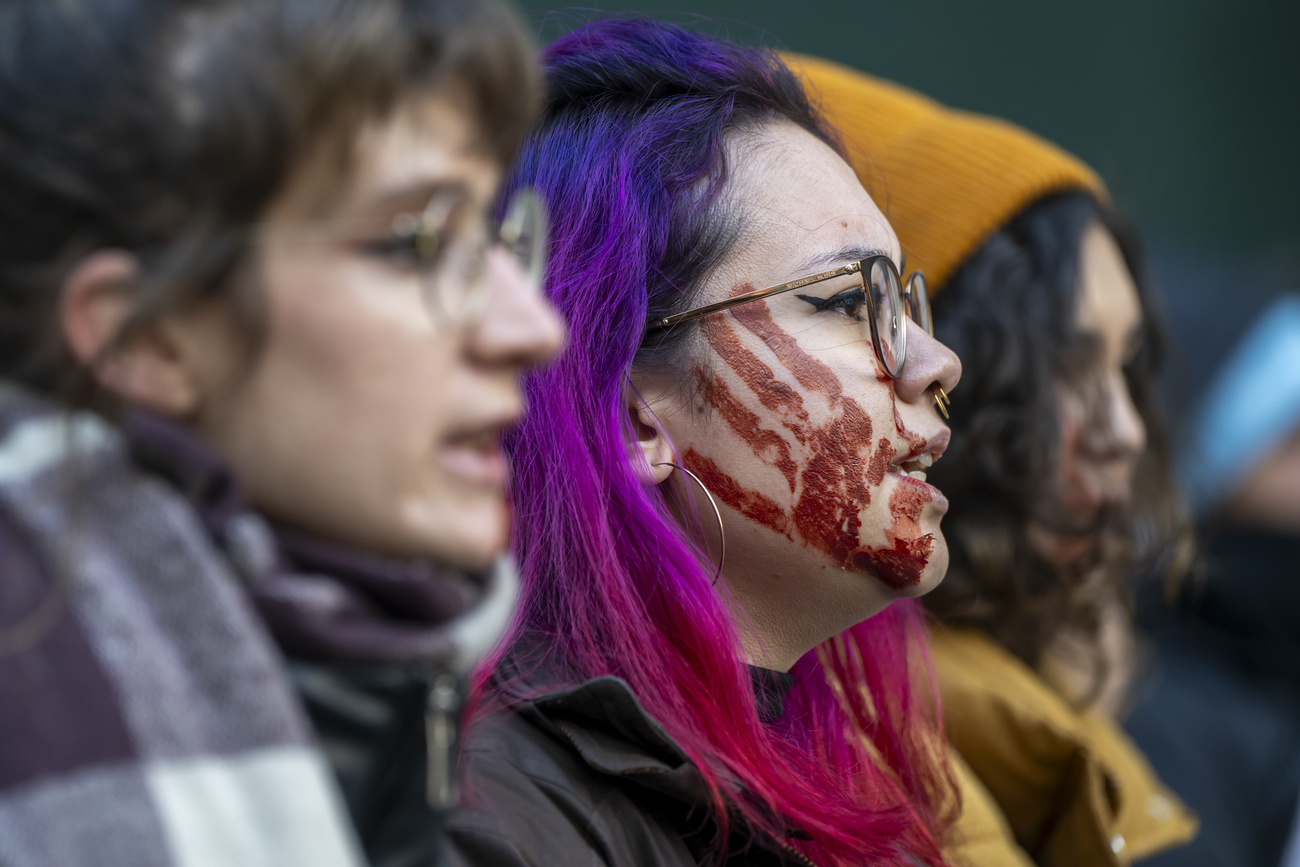
You can find an overview of ongoing debates with our journalists here . Please join us!
If you want to start a conversation about a topic raised in this article or want to report factual errors, email us at english@swissinfo.ch.